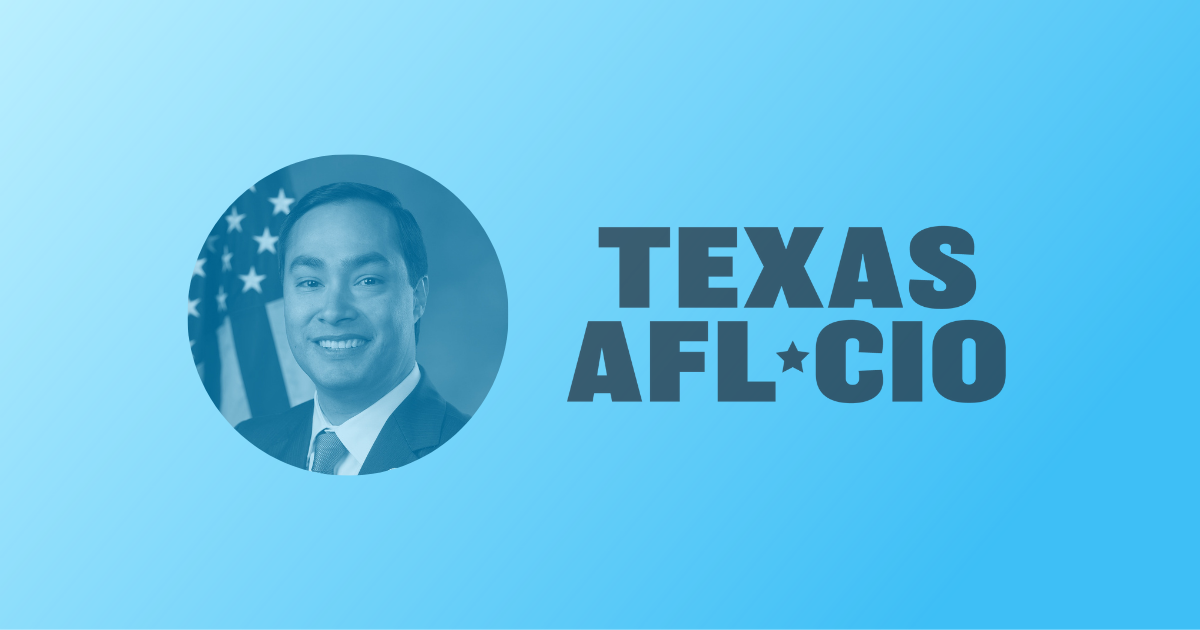Reps. Joaquin Castro (TX-20) and Judy Chu (CA-27) held a press conference with labor leaders on Friday to rally support for the Seasonal Worker Solidarity Act of 2022.
The legislation would reform the H-2B guest worker visa program to facilitate recruitment, require safe and fair workplace conditions, and require benefits like workers’ compensation insurance, and adequate transportation and housing.
The bill would also create a pathway to citizenship for guest workers and force employers to recognize any labor organizations or unions with majority support from the workforce.
The legislation would have a major impact on guest workers employed by seasonal industries like landscaping, forestry, food processing and hospitality.
“For decades the federal government has stood by as unscrupulous employers abuse the H-2B visa system to mistreat workers, undercut American wages, and drag down local economies,” said Castro, the bill’s sponsor.
Citing a Buzzfeed expose that compared the guest worker program and abuses within it — threats of deportation, beatings, imprisonment, and rape — to the “new American slavery,” Castro said the federal government needed serious reforms to protect the basic rights of seasonal workers.
Castro said the Seasonal Worker Solidarity Act would create a new framework for the visa program and improve labor standards.
“On Capitol Hill, my Republican colleagues have long pushed a false narrative that America needs to choose between protecting our workers and passing immigration reform,” Castro said. “But the Seasonal Worker Solidarity Act represents real progress for American workers, our economy at large, and guest workers who come here from across the world.”
“Under the Seasonal Worker Solidarity Act, the federal government will be able to crack down on employers who bypass U.S. workers for seasonal jobs, and small businesses will no longer face a competitive disadvantage when they follow the law,” Castro said.
Leonard Aguilar, secretary treasurer of the Texas AFL-CIO, said the stories of exploitation and violence within the H-2B program were both heartbreaking and infurtating.
“For far too many workers, these jobs turned into nightmares,” Aguilar said. “Because of the issues that were forced upon them, issues such as wage theft, poor working conditions, exposure to COVID-19, fraud and discrimination, harassment and retialtion.”
Describing the current H-2B program as a tool to keep workers divided, Aguilar said unions would never accept different workers’ rights based on immigration status.
“We can’t let employers pit workers against each other and drive down wages and working conditions,” Aguilar said.
“Seasonal jobs should be union jobs with fair wages and safe working conditions,” he said. “Workers should be empowered to take collective action and stand up against abusive employers.”
Rep. Judy Chu of California said seasonal workers were essential for the country’s food supply chain and said the legislation would bring much-needed reform to the visa program. It would ensure family unity by creating a pathway to citizenship and protect workers from retaliation if they report an abuse in the workplace.
“This bill will extend protective visas to workers who exercise their right to organize collectively or file claims against dangerous and illegal working conditions,” Chu said.
“It’s time that exploited workers were able to come out of the shadows, leave cruel conditions behind, and find jobs where they are treated with the dignity and respect that every work in America deserves,” Chu said.
The press conference also featured guest workers who spoke in favor of the bill and spoke out against abuses they faced while employed under the visa program.
Shellion Parris, a Jamaican woman who traveled to Florida in 2012 on an H-2B visa to clean houses with a company called Mr. Clean, said her employer promised them proper housing, insurance and fair wages for a specific number of houses cleaned, known as piece rate compensation.
Parrhellion Parris.is said she went into $2,000 debt to pay the cost of getting to the U.S. to work. She was placed in company housing with 12 other people in a two-bedroom apartment.
“We had to sleep on the floor, all thirteen of us,” Parris said. “At one point, after sleeping on the floor, we had to go to the dumpster to find a mattress to sleep on because we couldn’t sleep on the floor any longer.”
Parris said the piece rates soon turned to hourly compensation that came in the form of zero dollar paychecks.
“We would work from 7:00 a.m. to 7:00 p.m. with no breaks,” Parris said. “At the end of a two weeks, we would get zero dollar paychecks or just enough to buy a little food.”
“After receiving the zero dollar paychecks and remembering the debt that I have back home, we organized and started raising our concerns to our employer,” Parris said.
“He responded to us with threats of arrest and deportation,” Parris said. “He did that in writing, stapled to our zero dollar paychecks at the end of the two weeks.”
“At this point, I felt like I was trapped,” Parris said, explaining that the H-2B program did not allow her to seek employment elsewhere.
Parris and other guest workers continued to organize and eventually got in touch with the National Guestworker Alliance and other organizations that helped them successfully fight against the employer.
She said the experience has left her with lasting emotional pain that makes it difficult to talk about.
“Everytime I talk [about] this story, I’m always in tears, remembering what we went through and how much we felt like we were slaves,” Parris said.
Fernando covers Texas politics and government at the Texas Signal. Before joining the Signal, Fernando spent two years at the Houston Chronicle and previously interned at Houston’s NPR station News 88.7. He is a graduate of the University of Houston, Jack J. Valenti School of Communication, and enjoys reading, highlighting things, and arguing on social media. You can follow him on Twitter at @fernramirez93 or email at fernando@texassignalarchive.com





